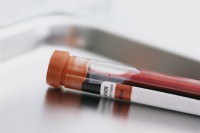
The latest in cancer treatment news for July:
- Rogue cancer cells in blood could help explain how tumors evolve as genes change over time, leading to new cancer treatments.
- Study finds faulty process in muscle-invasive bladder cancer, pointing to EGRF targeting drugs as possible cancer treatment.
- Statistics show nearly 40 percent of pancreatic cancer cases could be avoided by maintaining a healthy weight and not smoking. Lifestyle choices are known for influencing cancer risk.
- U.S. research uses tiny nanoparticle carrying anti-cancer drugs to target bone tissue and kill cancer cells.
- The National Cancer Research Institute points to the need for age limits in clinical trials to be more flexible to allow teenage cancer patients greater access to new treatments.
- Genetic research identifies three rare pathogenic mutations not previously known in public gene sequencing databases known to predispose carriers to breast and Lynch syndrome spectrum cancers.
- A new research report shows antihistamines used to treat colds, allergies and insect bites may play a role in warding off tumors.
- Vasectomy-associated prostate cancer risk is found to be small, though statistically significant, at an increased risk of 0.3 percent.
- A breakthrough by scientists in HER2-positive breast cancers could lead to new treatment this aggressive form of the disease, which is resistant to common treatments.
- Study shows men over 50 who cycle more than nine hours a week are more likely to develop prostate cancer.
Looking for more information on cancer treatment specific to yourself or a loved one? Contact Issels today. Issels offers the latest and most effective alternative cancer therapies available.





